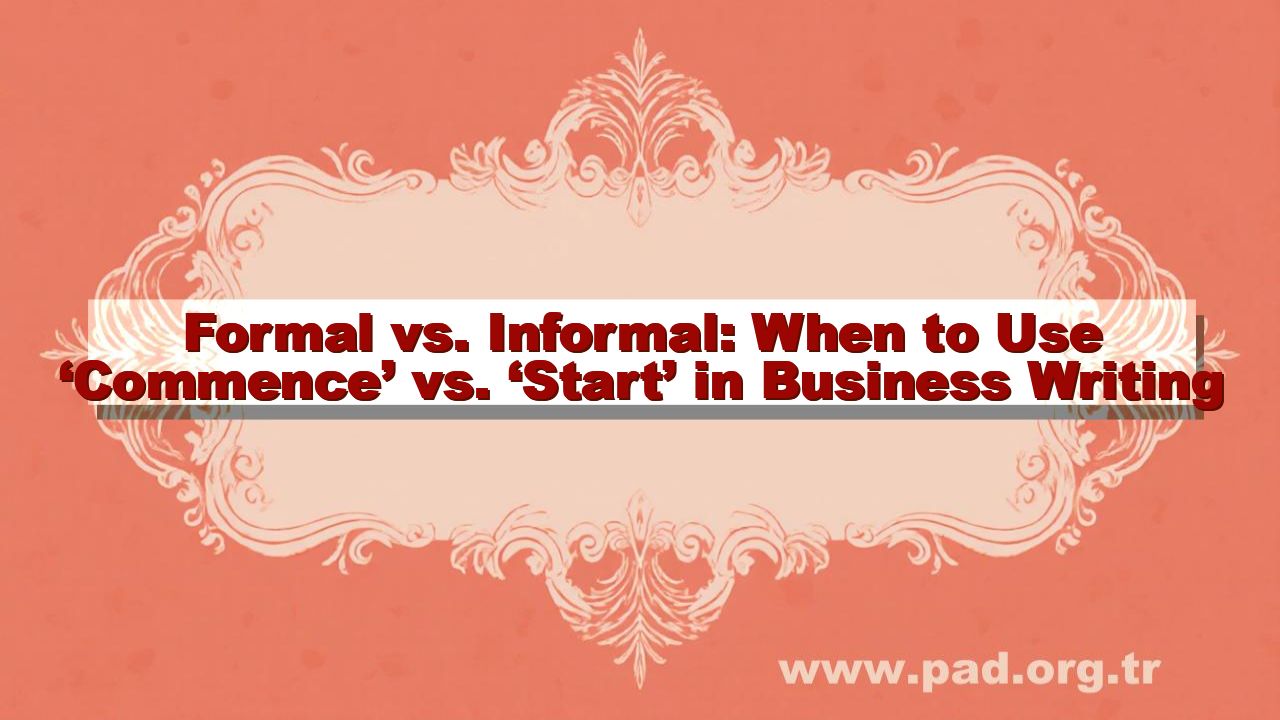The choice between ‘commence’ and ‘start’ in business writing comes down entirely to the level of formality you need for your document or communication. ‘Start’ is the everyday, direct, and active word, while ‘commence’ is a more formal and somewhat antiquated synonym. As a rule of thumb, you should use ‘start’ 🚀 for nearly all modern business writing, especially internal communications, emails, and procedural documents, reserving ‘commence’ only for highly formal, legal, or ceremonial contexts where tradition is valued over clarity and brevity.
‘Start’: The Modern Standard 💡
‘Start’ is a strong, simple, and Anglo-Saxon derived word. It should be your default choice in almost every professional setting. It is the clearest and most active word, conveying immediate action without any fuss.
- Internal Communications: Use ‘start’ in team emails, project updates, meeting minutes, and Slack messages. It’s direct and efficient.
Example: “Let’s start the meeting now.”
- Procedural Documents: Use ‘start’ in instruction manuals or process guides where clarity is paramount.
Example: “To access the platform, start by logging in.”
- General Business Writing: For most reports, presentations, and client emails, ‘start’ is the appropriate and most accessible choice.
‘Commence’: The Formal Exception 📜
‘Commence’ derives from Latin through French and carries a weight of formality and officialdom. While technically correct, using it in casual settings can make your writing seem unnecessarily pompous or old-fashioned. It is best reserved for specific, highly formal situations.
- Legal Documents: Contracts, stipulations, legal notices, and official decrees often use ‘commence’ to maintain a traditional, authoritative tone.
Example: “The term of this agreement shall commence on January 1, 2026.”
- Official/Ceremonial Events: Public announcements regarding official proceedings, particularly in government, academic, or military settings.
Example: “The graduation ceremony will commence promptly at 10:00 AM.”
- Academic Writing: Certain highly formal research papers or dissertations might use ‘commence’ for section introductions, though even here, many modern style guides now favor ‘start.’
Choosing the Right Word: A Simple Test 🤔
To determine which word is appropriate, ask yourself this question:
Would I say this word out loud to a coworker in the hallway?
- If the answer is Yes (e.g., “I’ll start the report after lunch.”), use ‘start.’
- If the answer is No (e.g., you wouldn’t typically say, “The review shall commence upon your submission.”), use ‘commence’ only if the document’s formal nature absolutely demands it (like in a contract).
In the vast majority of modern business contexts, the principle of plain language and efficiency dictates that ‘start’ is the superior and more engaging choice.


